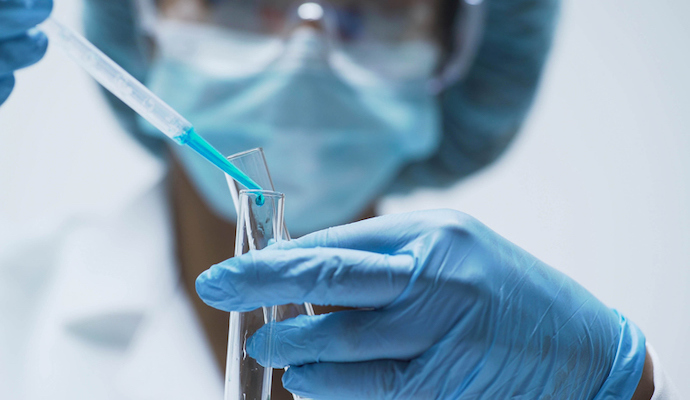Roche Launches Quantitative COVID-19 Antibody Test
Roche’s improves its previous COVID-19 antibody test, which can now more accurately quantitatively measure the level of antibodies against SARS-CoV-2 in patients who have been exposed to the virus.

Source: Thinkstock
- Roche recently announced the launch of its new COVID-19 antibody test, Elecsys Anti-SARS-CoV-2 S, for markets accepting the CE Mark.
The serology test will measure the number of antibodies to the spike protein of COVID-19, which could uncover whether a person has been already infected and has potentially developed immunity to the virus, a Roche spokesperson said in the announcement.
But Elecsys can only be administered after determining the level of antibodies an individual already has. This will help experts uncover any change in antibody levels that the vaccine induces, especially against SARS-CoV-2 spike protein.
“As the possibility of an effective SARS-CoV-2 vaccine becomes a reality, quantitative measurement of antibodies will be crucial in the evaluation of any potential vaccine. The new quantitative Elecsys antibody test can play a pivotal role in vaccine clinical trials as well as helping clinicians assess patients immune response,” Thomas Schinecker, CEO of Roche, said in the announcement.
“This will be instrumental in protecting people most vulnerable to the virus, as well as in overcoming COVID-19 for society in general. This new test, the twelfth in the Roche SARS-CoV-2 testing portfolio, is another essential addition to support healthcare systems and patients as we jointly fight COVID-19.”
The Elecsys Anti-SARS-CoV-2 S serology test can also determine antibody levels in plasmapheresis donations.
Plasmapheresis is a procedure which separates and removes the plasma from a patient’s blood. This plasma is then replaced with plasma from a donor, Roche said.
The Elecsys Anti-SARS-CoV-2 S test is the latest addition to Roche’s portfolio, which includes molecular, serology, and digital solutions to combat COVID-19 at the beginning of infection.
Using the Elecsys Anti-SARS-COV-2 S antibody test, together with Roche’s Elecsys Anti-SARS-CoV-2 test, which was launched in May, can help to more accurately determine the percentage of a population who already have antibodies against SARS-COV-2. Together, the tests can also help experts contain the spread and implement necessary restrictions, Roche said.
The initial goal of the Elecsys Anti-SARS-CoV-2 test was to scan high-risk groups, such as healthcare workers and food supply workers who may have developed immunity and could safely return to work.
The immunoassay in vitro test uses human serum and plasms drawn from a blood sample to detect antibodies and determine the body’s immune reaction to SARS-CoV-2.
Hospitals and other laboratories can leverage the test on Roche’s cobas e analyzers.
Antibody tests can provide valuable public health information by uncovering if an individual’s immune system has developed the antibodies needed to fight off infections, particularly COVID-19.
But just days after Elecsys-SARS-CoV-2 was released to the public in May, the Subcommittee on Economic and Consumer Policy released a staff memo with preliminary findings that showed significant gaps in the Trump Administration’s handling of serological COVID-19 antibody testing.
Raja Krishnamoorthi, the chairman of the Subcommittee, based the findings on a briefing with senior officials from FDA, CDC, and HHS.
One of the main challenges was the White House’s plans to reopen the economy. The lawmakers argued that the plans are flawed by their dependence on COVID-19 antibody tests, which face unanswered scientific questions.
Additionally, FDA did not review any COVID-19 “rapid” antibody test kits before they went to market and cannot validate the accuracy of ones currently on market.
Lawmakers also found that lack of enforcement by FDA allowed manufacturers to make fraudulent claims about their efficacy, companies ignored requests from HHS to voluntarily submit their tests for validation, and FDA and CDC did not put forth standards and guidelines for serological antibody tests.
Since then, major pharmaceutical companies, including Regeneron, GSK, Vir Biotechnology, Eli Lilly, and Junshi Biosciences have launched antibody tests that, so far, have proven to be effective in assessing COVID-19.
But experts must continue to monitor clinical trials and assess any potential challenges to ensure the safety of the patient.
